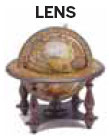A little dirt to undo the harm of a fear of germs
Updated: 2012-08-05 08:02
By Tom Brady (The New York Times)
|
||||||||
A five-year study that involved 200 scientists at 80 institutions across the United States could go a long way to changing the negative image of bacteria. The Human Microbiome Project sequenced the genetic material of bacteria from 250 healthy people, and found that the 100 trillion bacteria that live in or on the body are important to our health.
One way to maintain a healthy balance of bacteria may be to eat more dirt. And pair it with a nice cabernet.
As farmers' markets have proliferated across the United States, Jeff D. Leach wrote in The Times, their most significant impact may not be the healthy food they offer but rather "its role as a delivery vehicle for putting dirt back into the American diet and in the process, reacquainting the human immune system with some 'old friends.'"
Mr. Leach says these "old friends," including pathogens and benign microorganisms, were once a part of the diet when most people lived on farms and ate food pulled from the ground rather than grocery store shelves. These "friends" once protected humans from food allergies and autoimmune disorders, which have increased at a startling rate in recent decades.

This research suggests that reintroducing organisms from mud and water "would help avoid an overreaction of an otherwise healthy immune response that results in chronic diseases like Type 1 diabetes, inflammatory bowel disease, multiple sclerosis and a host of allergic disorders," Mr. Leach wrote.
Once you've added dirt to the dinner plate, have at least two glasses of red wine, which research shows also improves intestinal health. For teetotalers, the wine without the alcohol proved to be just as effective, The Times reported.
The American Journal of Clinical Nutrition published the results of a study of healthy adults who drank about a quarter of a liter of red wine daily. Subjects experienced lower blood pressure and improved bacterial composition in the gut, which research suggests does things like training the immune system, preventing the growth of harmful bacteria and producing vitamins and healthy hormones.
Fears of infections have created a boom in hand sanitizers and wipes. Engineers have also developed technologies against pneumonia and sepsis infections, which are increasingly common in hospitals, and antibiotic resistant micro-organisms that cause tens of thousands of deaths a year, Diane Ackerman wrote in The Times.
"Nanoengineers have developed a way to coat both hard surfaces (like hospital bed rails, doorknobs and furniture) and also soft surfaces (sheets, gowns and curtains) with microscopic nanoparticles of silver, an element known to kill microbes," Ms. Ackerman wrote.
This technology works almost too well. It kills all the bacteria, including the good ones that keep us healthy. But the industry is filling a market niche by responding to the fear of bacteria.
No one would deny that better hygiene and sanitation have helped largely wipe out diseases like cholera, typhoid fever, tuberculosis and staph infections.
But our obsession with cleanliness may have gone too far, Mr. Leach wrote, and "inadvertently given rise to a set of truly human-made diseases."
For comments, write to nytweekly@nytimes.com.

 'Taken 2' grabs movie box office crown
'Taken 2' grabs movie box office crown
 Rihanna's 'Diamonds' tops UK pop chart
Rihanna's 'Diamonds' tops UK pop chart
 Fans get look at vintage Rolling Stones
Fans get look at vintage Rolling Stones
 Celebrities attend Power of Women event
Celebrities attend Power of Women event
 Ang Lee breaks 'every rule' to make unlikely new Life of Pi film
Ang Lee breaks 'every rule' to make unlikely new Life of Pi film
 Rihanna almost thrown out of nightclub
Rihanna almost thrown out of nightclub
 'Dark Knight' wins weekend box office
'Dark Knight' wins weekend box office
 'Total Recall' stars gather in Beverly Hills
'Total Recall' stars gather in Beverly Hills
Most Viewed
Editor's Picks

|

|

|

|

|

|
Today's Top News
Health new priority for quake zone
Xi meets US top military officer
Japan's boats driven out of Diaoyu
China mulls online shopping legislation
Bird flu death toll rises to 22
Putin appoints new ambassador to China
Japanese ships blocked from Diaoyu Islands
Inspired by Guan, more Chinese pick up golf
US Weekly

|

|







